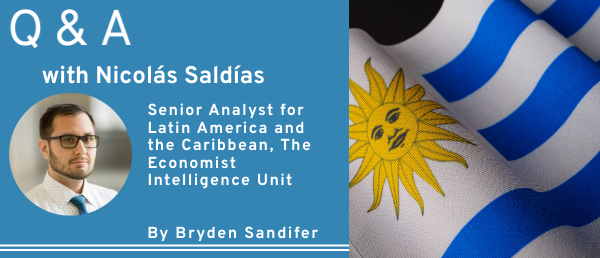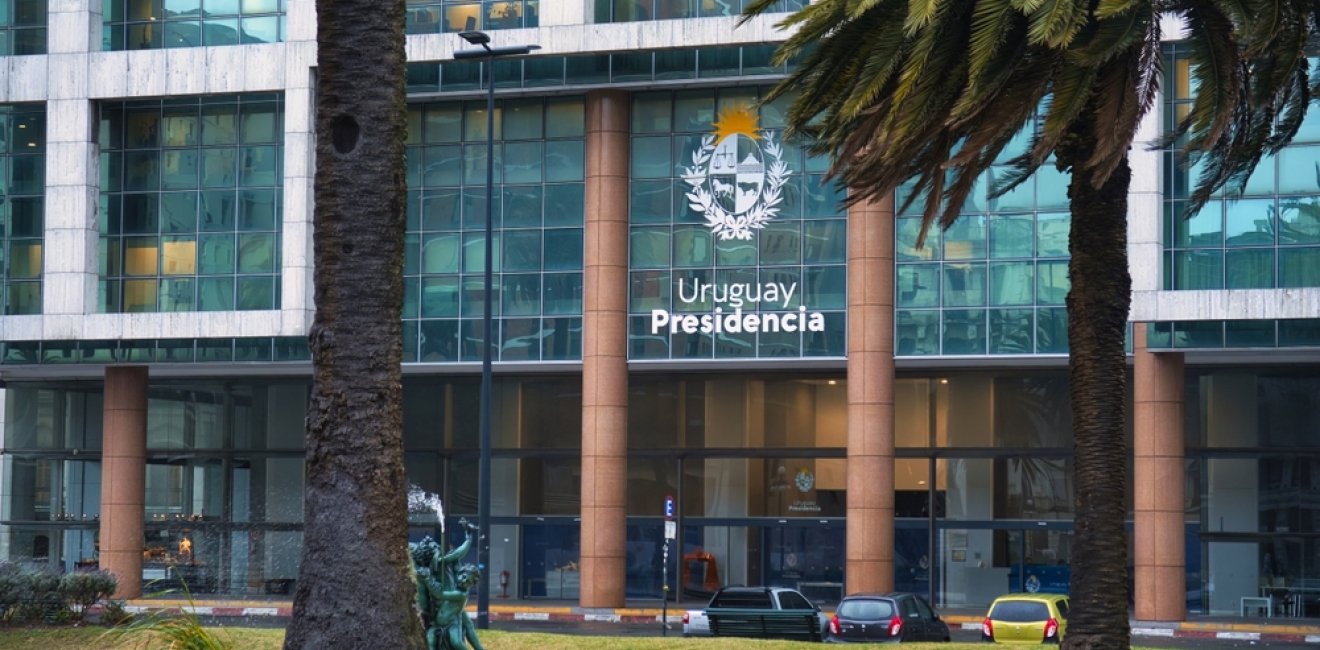
A blog of the Latin America Program

Q: On October 27, Uruguayans will vote for their next president, with polling showing the candidates from the conservative ruling National Party and the left-wing Frente Amplio coalition in the lead. It is common to hear that elections in Uruguay are less consequential than in other countries in the region, given the broad consensus over Uruguay’s economic policy. Is that how you see it? How distinct are the platforms of the leading candidates?
A: Uruguay’s political party system is the strongest in the region, with both the Frente Amplio and the parties of the governing coalition having strong bases of support, meaning that these parties represent most of the electorate. Fringe parties do a relatively good job of capturing votes on the far ends of the political spectrum. As a result, the number of undecided voters in Uruguay is relatively small. This means that viable parties competing for the presidency are vying for the remaining voters, who are ideologically centrist. To win over these voters, the parties tend to converge towards the center on policy.
Even so, there are broad policy differences. For example, the major parties agree on the need for fiscal consolidation, but they differ in how it should be achieved. Right-of-center parties would reduce the size of the state and increase bureaucratic efficiencies, including in state-owned enterprises. These parties would be unlikely to raise taxes, which the National Party nominee Álvaro Delgado has explicitly pledged not to do. For its part, the Frente Amplio’s proposed economy minister, Gabriel Oddone, says the government would achieve a primary surplus of 2% of GDP by the end of the five-year term, but is not clear how this ambitious target would be achieved, given that the Frente Amplio candidate, Yamandú Orsi, says the government would neither raise taxes nor reduce the size of the state.
On social issues, the main parties would preserve many of the progressive reforms introduced by the Frente Amplio during its 15 years in power (2005-2020), including same-sex marriage, abortion, and the legalization of marijuana. An area where there is somewhat more daylight between the parties concerns how best to address crime. The Frente Amplio would pursue more of a “root causes” approach, attempting to reduce violence by reducing poverty and social exclusion. By contrast, the governing coalition would expand policing powers and rely more on punitive measures.
Q: The two leading candidates are Delgado, President Luis Lacalle Pou’s former chief of staff, and Orsi, the former mayor of Canelones. Lacalle Pou’s 2019 victory ended 15 years of Frente Amplio rule and seemed to reflect the regional anti-incumbent zeitgeist. Will that same trend bring the Frente Amplio back into power? Or will Delgado ride Lacalle Pou’s coattails into the Torre Ejecutiva, given Lacalle Pou’s popularity, even amid public anxiety about violent crime and public frustration with rising prices?
A: If Delgado wins the presidency, there would be continuity with Lacalle Pou’s policies. As secretary of the presidency, Delgado was a key figure in designing and implementing the government’s agenda. A Delgado administration would pursue policies to gradually reduce the tax burden, increase competition through deregulation, and enhance trade openness. The government would focus its social spending on reducing child poverty. A Delgado presidency would continue Uruguay’s free trade agenda, including advocating for a reform of the Mercosur trade bloc’s rules and for lowering its common external tariff. Delgado’s foreign policy would be largely aligned with that of Argentina’s president, Javier Milei, as well as with the United States, including on issues related to Venezuela.
Orsi would balance attempts at fiscal consolidation with expanded social welfare priorities. Although he has downplayed the possibility of raising taxes, that might be difficult without discarding his ambitious fiscal targets. The biggest change would be in foreign policy. Due to the Frente Amplio’s historically pro-Mercosur stance, Orsi would likely abandon efforts at negotiating free trade agreements outside of the bloc. Diplomatically, Uruguay would align more closely with Brazil and adopt a less outspoken posture toward Venezuela.
Q: In addition to the presidential race, this year’s ballot features two referenda, including a question about nighttime police raids on private homes. Any predictions on the security referendum? Does debate about security policy help any particular party in this election?
A: Polls show that crime is the most important issue facing the country. Although crime rates have gradually fallen in recent years, they remain uncomfortably high. A key driver for the plebiscite is the rising influence of organized crime, which, as the case of Ecuador has shown, could quickly spiral out of control. The plebiscite to allow nighttime raids would involve a constitutional amendment. Uruguay is a global outlier in prohibiting the practice, and polls suggest a solid majority of voters are in favor of the reform. However, polls also show that support has gradually declined, as the Frente Amplio and civil liberties advocates have campaigned against it. Nonetheless, it is likely to pass.
Q: The second referendum, on social security, would reverse a recent decision to raise the retirement age from 60 to 65, among other recent reforms designed to stabilize the national pension system. This issue seems to be getting more attention than even the presidential election, at least among investors. What is all the fuss about?
A: The plebiscite on pensions has dominated the presidential campaign, as its potential impact on Uruguay’s finances and reputation with investors are on the line. If the reform passes, lowering the retirement age would increase the government’s unfunded pension liabilities. Meanwhile, raising the minimum pension to match the minimum salary would lead to a significant increase in expenditure, up to $1.5 billion, according to some estimates. That would complicate the economic agenda of the next president, who would have to scramble to find ways to cover the increased spending without ballooning Uruguay’s already wide fiscal deficit.
The third part of the reform would eliminate the private pillar of the pension system, which holds about $23 billion in savings. This would violate property rights, and it is unclear where the money would go and how it would be administered. It could also lead to lawsuits against the state, and potentially significant fines. The sweeping changes would threaten Uruguay’s investment-grade rating and could result in lower growth and higher borrowing costs. For these reasons, all major party leaders have called on voters to reject the plebiscite. The real test will be whether voters heed their advice.
Authors



Latin America Program
The Wilson Center’s prestigious Latin America Program provides non-partisan expertise to a broad community of decision makers in the United States and Latin America on critical policy issues facing the Hemisphere. The Program provides insightful and actionable research for policymakers, private sector leaders, journalists, and public intellectuals in the United States and Latin America. To bridge the gap between scholarship and policy action, it fosters new inquiry, sponsors high-level public and private meetings among multiple stakeholders, and explores policy options to improve outcomes for citizens throughout the Americas. Drawing on the Wilson Center’s strength as the nation’s key non-partisan policy forum, the Program serves as a trusted source of analysis and a vital point of contact between the worlds of scholarship and action. Read more

Explore More in Weekly Asado
Browse Weekly Asado
Dengue Haunts South America’s Summers

Lessons from Costa Rica’s Economic Transformation

Women and Latin America’s Digital Revolution

